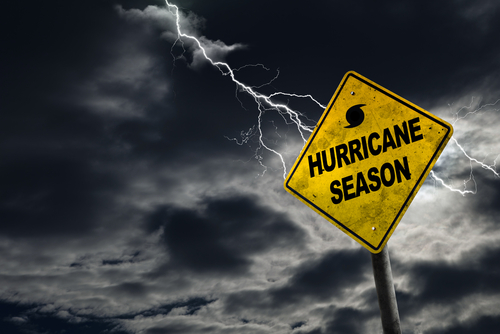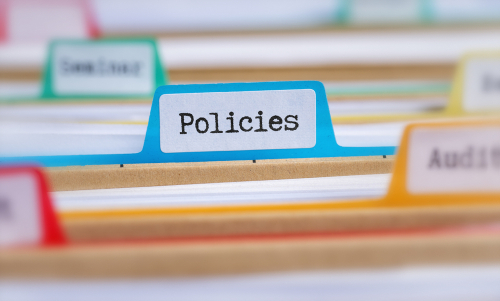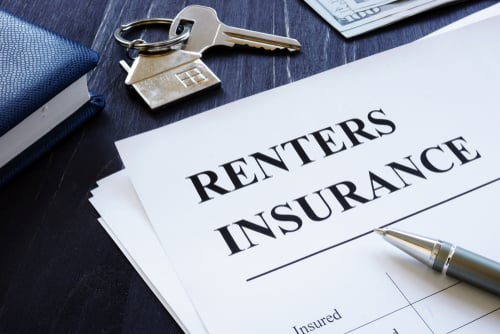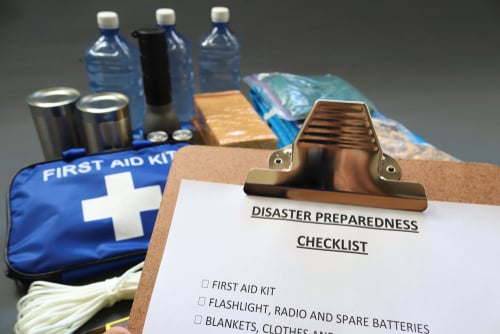
When you know hurricane season is coming, it’s important to start taking precautions as soon as possible. After all, most landlords would do anything to protect their rental properties. But how can you protect your property from a hurricane? Read along as we go over how to protect your rental property and keep your tenants safe during an emergency.
What is the Atlantic Hurricane Season and When Does It Start?
Atlantic hurricane season is the time of year when hurricanes are most likely to start in the Atlantic Ocean, running from June 1st until November 30th. Last year was one of the most active years for hurricanes, and experts are predicting a similar scenario for 2022.
One thing’s for certain, no matter where you live during hurricane season–it’s important to protect your property. For instance, whether you own a home or rent, it’s crucial to take emergency precautions and stay prepared for potential hurricanes.
If you’re unsure how to protect your rental property or family-owned home from damages this hurricane season, just keep reading. Below, we’ll give you tips on protecting your rental property and the importance of insurance for both landlords and renters.
How to Protect Your Rental Property From Damages

Prevention can go a long way in protecting your rental property from hurricane damage. Of course, the first thing any property owner wants to do is check their insurance policy. Unfortunately, most basic policies won’t cover storm damage or other significant property damages. Here are some other precautions to consider before hurricane season starts.
- Ensure You Have Coverage For Damages
- Recommend or Require Renter’s Insurance
- Prepare For Intense Wind and Rain
- Talk With Your Tenants
Ensure You Have Coverage For Hurricane Damages
Make sure you have coverage for flood damage and hurricane damage. Additionally, make sure you know the details of each policy. For instance, some hurricane insurance policies have certain parameters, like winds over 100 mph. If you’re not satisfied with your current insurance policy, make sure to update it.
Recommend or Require Renter’s Insurance
Furthermore, most landlords recommend or even require renter’s insurance for tenants if they don’t have it already. That said, your tenant’s property and personal belongings aren’t covered in the event of a natural disaster. So, it’s essential to inform them that they’ll need or want to get renter’s insurance for protection during a hurricane.
Prepare For Intense Wind and Rain
If you’re wondering how to protect your rental property from intense wind and rain, there are a few things renters and owners can do. To keep your rental safe, you can board up the windows, remove any outdoor furniture, bring outdoor items indoors, and consider using hurricane straps to reinforce the roof. A hurricane strap is a connecter used to strengthen the roof and secure it to the property’s walls.

Talk With Your Tenants
Speak with your tenants about their plans for a potential hurricane and tell them what precautions you’ve taken to protect the property. Try to give them helpful advice or point your tenant’s toward preparedness resources, like this information from ready.gov. Additionally, ask your renters what their plans are for the storm. Whether they are evacuating or sheltering in place, encourage them to follow all local orders and corporate with authorities.
Importance of Requiring Renter’s Insurance
As mentioned early, most landlords require, or at least encourage renter’s insurance. It’s a common misconception for renters to assume their property is covered under their landlord’s policy. Unfortunately, this is untrue. Any property damaged from a hurricane or other natural disaster is not covered at all.
That said, landlords should inform their tenants about the benefits of renter’s insurance. Luckily, renter’s insurance doesn’t cost too much per month, typically running around $30 at the most. With insurance, your tenants can feel safe knowing their property is covered in the case of a flood, fire, hurricane, or another natural disaster.
Tips For Staying Prepared During an Emergency

Requiring renter’s insurance and learning how to protect your rental property are two of the most crucial steps in preparing for an emergency. Here are some other considerations for staying prepared during this year’s hurricane season.
- Stay Informed
- Make a Plan Ahead of Time
- Pack an Emergency Kit
- Prepare Your Rental
- Stock Your Pantry
Stay Informed
During an emergency, the first thing to do is to keep yourself informed about what’s happening. Ignoring or simply not knowing that there’s an emergency can be dangerous and reckless. So, you can sign up through your cell phone provider to get notifications sent to your phone for free, which tell you when there’s a potential emergency in your location. Additionally, you can read the news or get notifications from other news sites directly to your phone.
Make a Plan Ahead of Time
Make sure you, your tenants, and property managers in Baltimore are all on the same page when it comes to an action plan. No matter what the emergency is, creating an evacuation plan, a fire escape plan, a hurricane safety plan, etc., is crucial for everyone involved. Without a plan formulated ahead of time, you could be scrambling during an emergency, which is more stressful than following a plan.
Pack an Emergency Kit
If you have to leave your home or tend to an emergency somewhere else, you’ll want to pack a kit that’s easy to grab and ready to go. Some of the things you’ll want to pack with you while you find shelter are:
- Food and water
- First-aid kit
- Battery-powered flashlights or lanterns
- Extra batteries
- Tools to turn off utilities
- Cell phone with chargers
- Personal sanitary items
Prepare Your Rental
One of the first steps in preparing your rental for an emergency is making sure everything is put away as safely as possible. For instance, it’s best to have a fireproof safe to keep important documents tucked away safely. Additionally, if you have to evacuate from your home and the power goes out, make sure to unplug all electronics and appliances before you go. This will help prevent damage when the power turns back on. Finally, you can prepare for sheltering in place by stocking your pantry and making sure you have the essentials you need for an extended period of time.
Stock Your Pantry

If you’re planning on staying home to shelter in place, you’ll need to stock your pantry with enough food to last a while. Some shelf-stable items include:
- Canned tuna
- Mixed nuts
- Boxed grains
- Olive oil
- Canned tomatoes
- Canned vegetables and fruits
- Seasonings
- Soy sauce
- Ketchup
- Mustard
Storing food items is another thing to consider if there’s a potential emergency. For example, if there’s a chance of flooding, store food in waterproof containers and make sure they’re stored up high to avoid contamination.
Can Rental Property Management Help You Stay Prepared?
Unfortunately, natural disasters are inevitable and cannot be stopped–only we can be more prepared. That said, if you’re a landlord, it’s crucial to learn how to protect your rental property in the case of an emergency. Luckily, you don’t have to manage your rentals alone. Bay Property Management Group provides top-notch rental services to landlords seeking help managing their rental business.
Within our list of comprehensive services are tenant screening, maintenance, rent collection, and more. Contact BMG today if you need rental management services in Baltimore, Philadelphia, Northern Virginia, or Washington DC.
